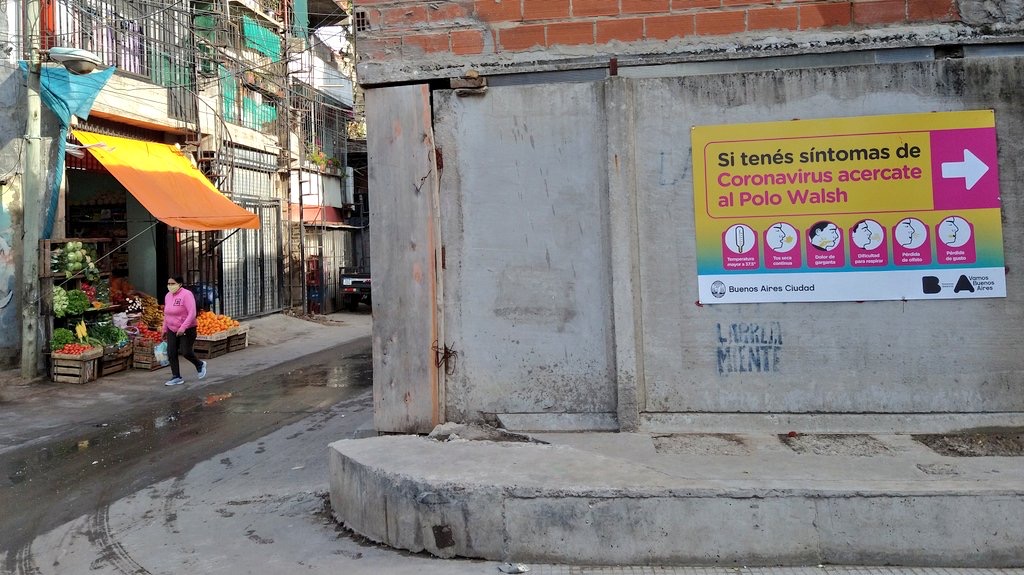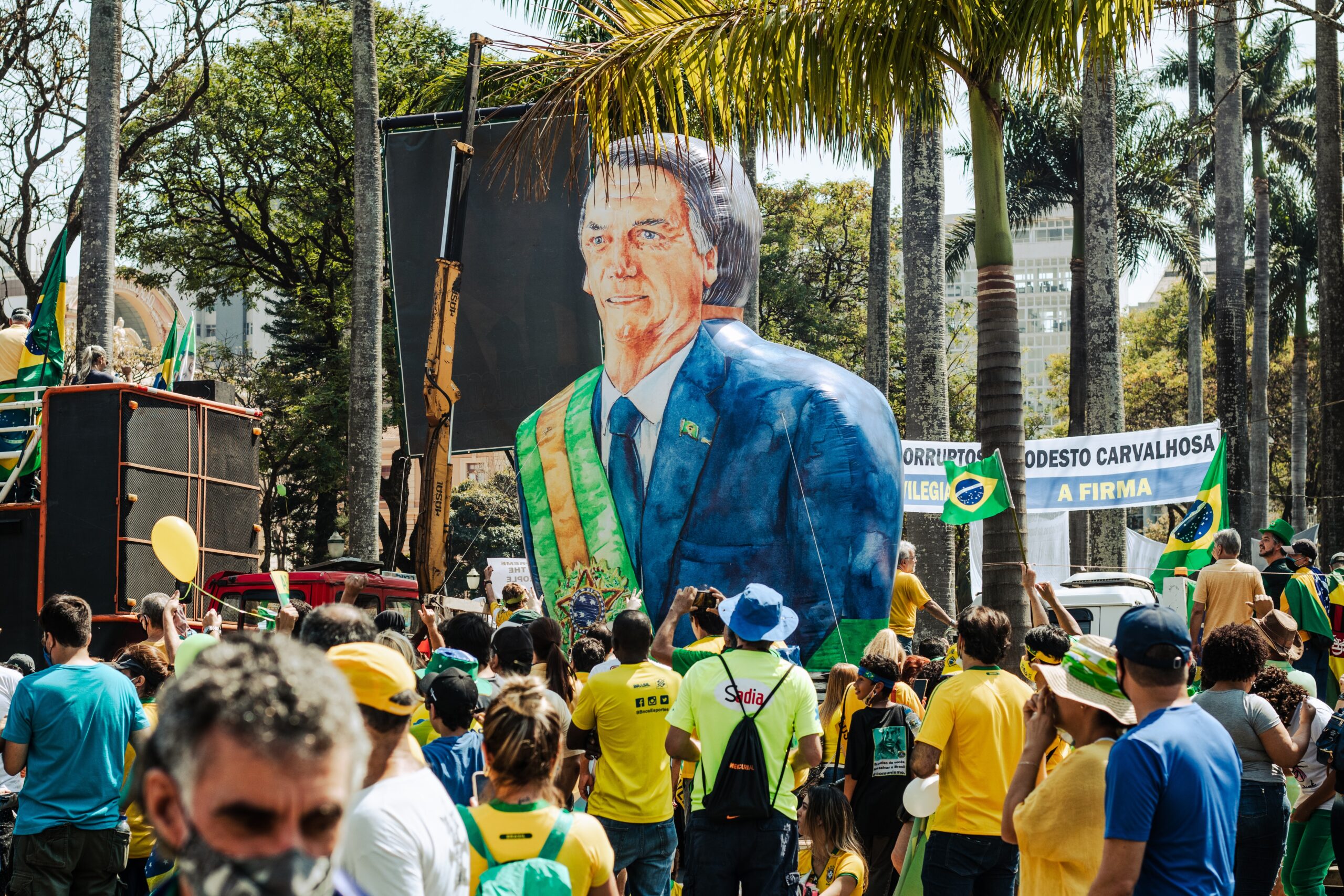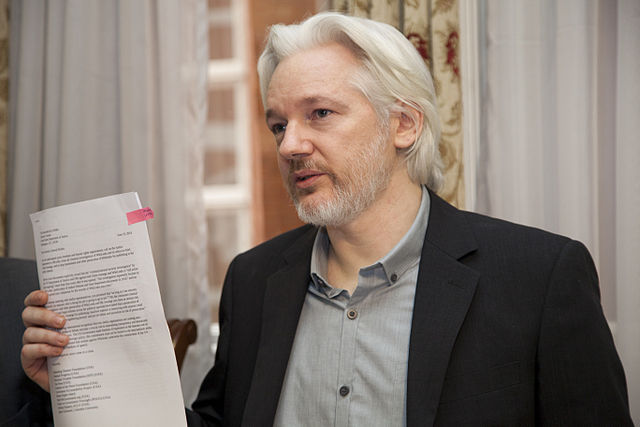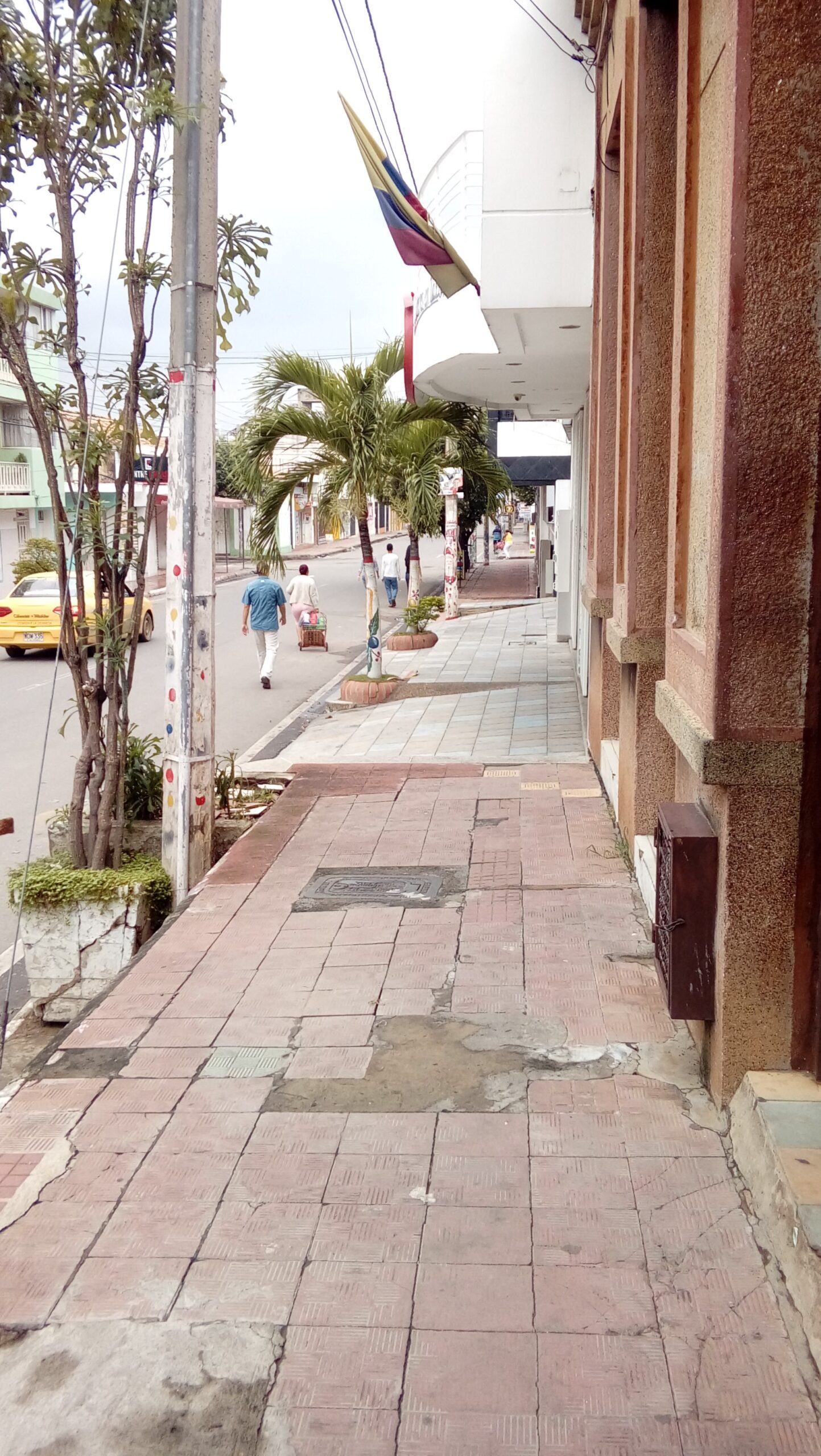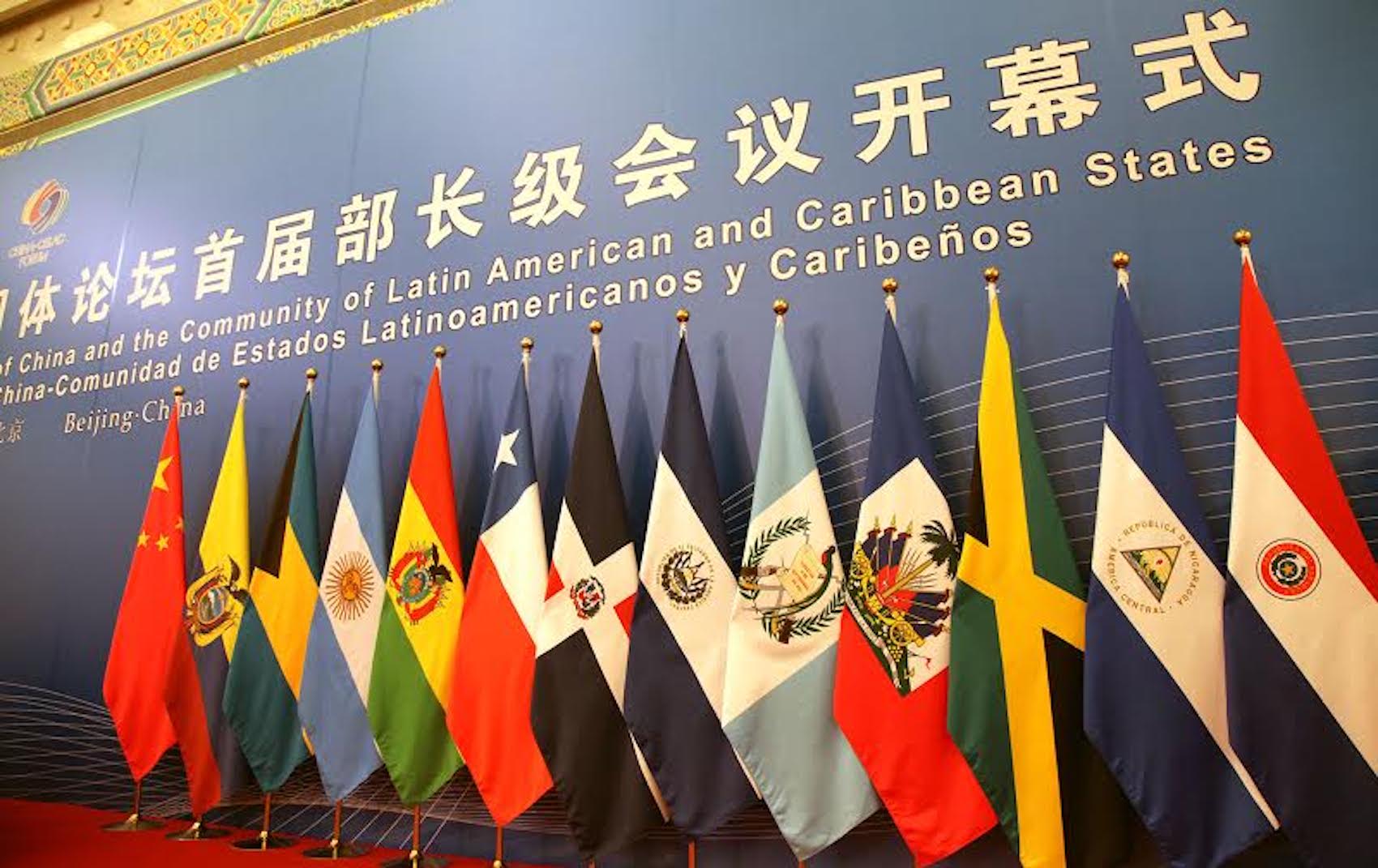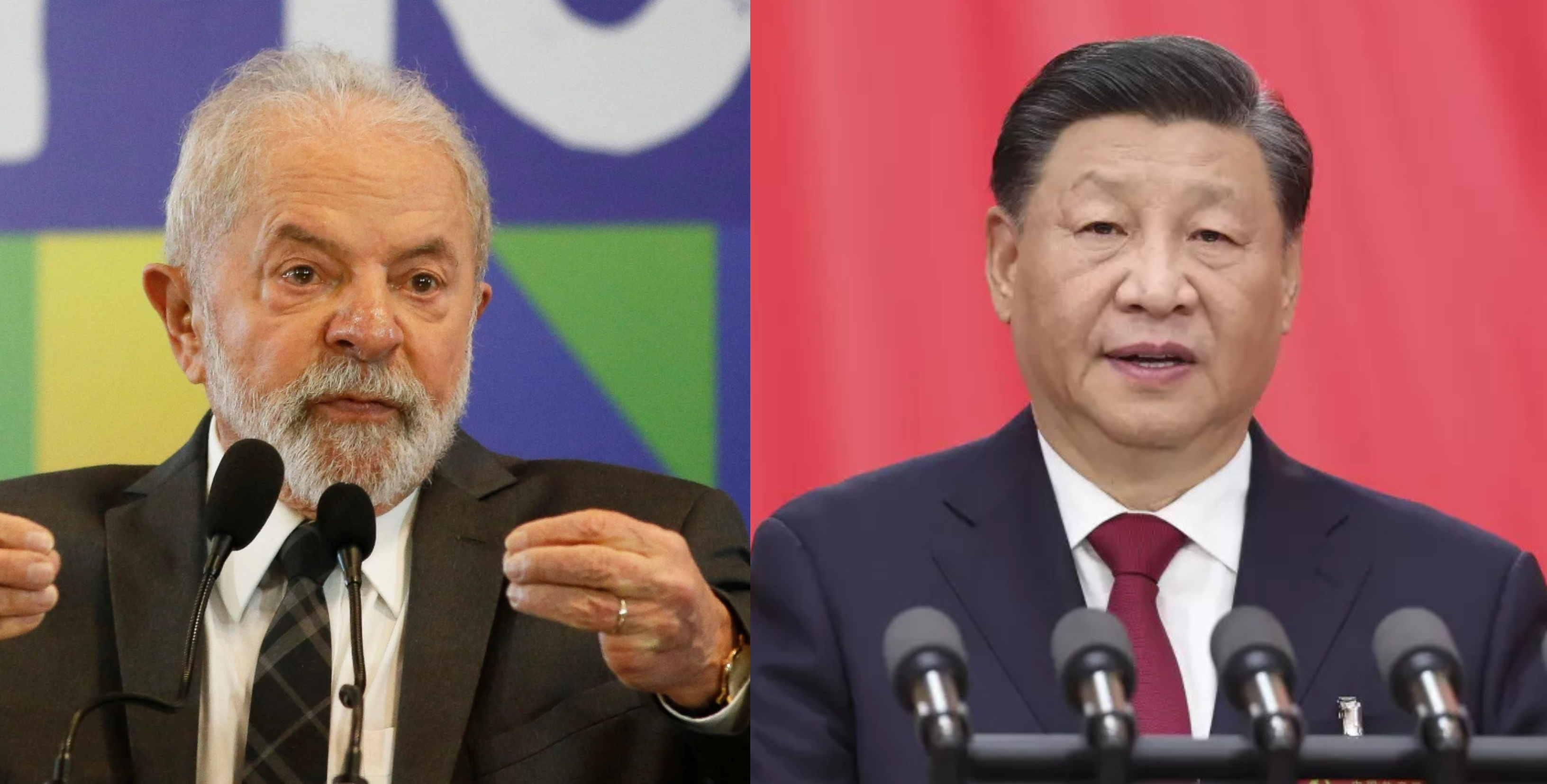
Right: Chinese president Xi Jinping delivers a speech in Beijing on Oct. 16 (Yao Dawei / Associated Press)
Brazil, Southern Cone
Here’s What You Need to Know Ahead of the Lula-Xi Meeting
March 24, 2023 By Jacob Kessler
Brazilian President Luiz Inácio Lula da Silva is scheduled to travel to China on April 14. After initially postponing the trip due to contracting pneumonia, he will meet with Chinese President Xi Jinping in Beijing in a much-anticipated meeting between two of the world’s most influential leaders.
Both recently began their third terms: Lula after a contentious run-off in October of last year and Xi after handing himself an unprecedented third term at a ceremony held two weeks ago. The two world leaders had previously met in 2009 when Xi Jinping was not yet in power; Lula was on an official state visit.
Now, Lula and Xi will meet under entirely new circumstances as the two countries have both been positioning themselves in a much stronger position on the world stage compared to fourteen years ago. And after five years of Bolsonaro’s anti-China rhetoric and anti-communist tirades, Lula’s more even-handed approach to China may be welcomed by Beijing.
The “Patient” Approach under Bolsonaro and Lula’s “Conciliatory Posture”
As president, Bolsonaro occasionally placed Brazil at odds with China. Both the former president and his son have suggested that the fault for the Coronavirus pandemic lies with the Chinese Communist Party (CCP). Not least, Bolsonaro said that China was “trying to buy” Brazil, referring to huge investments by Chinese corporations in Brazil’s energy and infrastructure sectors.
“For the first time, [the Bolsonaro government] shook the relationship that the two countries had been building and strengthening for decades,” Rafael Abrão, a researcher with the International Institute for Asian Studies told LAND.
Abrão said that China had adopted a “patient” approach to diplomacy in Brazil under Bolsonaro. The Chinese embassy in Brasilia adopted this non-confrontational approach with the expectation that the power of “Bolsonarism” would eventually wane and relations between the two countries would simmer down and normalize, he said. So, although Chinese diplomats rebuked the Bolsonaros’ Covid-19 accusations, they still provided Brazilians with vaccines when Western nations were focusing on vaccinating their own citizens. Xi Jinping also sent a congratulatory message to Bolsonaro on the 200th anniversary of Brazilian independence.
Beijing’s strategy is not Brazil-specific. Rather, it’s a cornerstone of how their foreign policy operates in democracies the world over. In democratic countries like Brazil, Xi Jinping understands that neither an antagonistic nor friendly leader will last forever; he would rather ride things out than risk rocking the boat with a drastic move.
In addition to Chinese diplomacy, some analysts argue that “pragmatists” in the Bolsonaro administration (namely, Vice President Hamilton Mourão and Minister of Agriculture Tereza Cristina) were able to assure Chinese diplomats that the President’s rhetoric would not severely impact the Brazilian-Chinese relationship in the long-term.
Now, it seems that China’s patience has paid off. Abrão told LAND that “with the end of the Bolsonaro period, Brazilian foreign policy is being rebuilt.”
“Lula has a conciliatory posture, and strengthening ties with China is of extreme political and economic relevance. China has become a priority for the Lula government,” he said.
The Chinese-Brazilian Economic Relationship
Indeed, it might be in Lula’s best interest to prioritize China. The country is Brazil’s largest trading partner. In Latin America, Brazil is China’s largest trading partner — in 2020, Brazil’s exports accounted for USD 67.8 billion or 52% of total exports from Latin America and Caribbean countries to China.
Although Brazil has not signed on to Xi’s signature Belt and Road Initiative, the continent’s biggest country still received more than half of all Chinese investment in Latin America as of 2020, according to a study by Luiz Augusto de Castro Neves and Tulio Cariello of the Brazil-China Business Council.
Yet Bolsonaro’s harsh rhetoric did not put a damper on the economic relationship between Brazil and China. Under the former president, trade between the two countries grew from around $100 billion in 2019 to $135 billion in 2021.
It’s clear, then, why the Brazilian delegation to China will include 240 business representatives and why trade will be high on the agenda (and perhaps why Lula, a champion of indigenous rights in his own country, will likely not speak to Xi about sensitive human rights issues in China).
André Victor Mendes, a Brazilian geographer who focuses on China, told LAND that “the search for investments in infrastructure” will be one of the key themes of this meeting.
“There is a unique convergence of demands and strategic objectives between China and Brazil,” said Mendes. “China can be a great ally in Brazil’s reindustrialization process through technology transfers and helping build high-speed rails.”
Mendes said this will all help China achieve its geopolitical goals of expanding its international commercial partners and reducing US global influence. The quest for reduced US influence may be most apparent in another of the meeting’s agenda items — the Russia-Ukraine War.
Russia-Ukraine and Lula’s “International Agenda”
As leaders of two of the most powerful countries from the Global South, the pair are leading their countries at a time when both China and Brazil are increasing their international influence. Both Lula and Xi in recent months have shown a strong interest in staking a stronger position in one of today’s most intractable conflicts.
On March 21st, Xi Jinping visited Russian President Vladimir Putin in Moscow. There, Putin backed Xi’s proposal for a “peaceful settlement in Ukraine.” This visit comes as China has been positioning itself as a neutral peacemaker for the war.
Increased Chinese involvement in resolving this conflict is something Lula has explicitly advocated for. In January, Lula said “our Chinese friends” should “get their hands dirty.” The Brazilian president also said China has an important role to play in this conflict. Therefore, it should come as no surprise that in an interview with Brasil TV 247, Lula praised Xi’s visit to Russia.
“It is great news that China has gone there, good news,” Lula said.
But Lula does not want China to solve this conflict alone and is actively pushing for Brazil to play a larger role in the war.
According to Celio Hiratuka, Coordinator of the Brazil-China Study Group at Unicamp, a key priority for Lula is the “international agenda” and Lula’s foreign policy will be marked by a concerted effort to help Brazil gain a more prominent position on the world stage.
“The Bolsonaro Government had a policy of isolation, and due to its extreme right-wing positions…it ended up making Brazil a pariah in global relations,” said Hiratuka.
Undertaking Russian-Ukrainian diplomacy can be one way in which Lula can undo this pariah status and accomplish the goal of increasing Brazil’s prominence.
Indeed, Kelly Fereira, Professor at the Pontifical Catholic University of Campinas (PUC Campinas), told LAND that Lula’s goal with Russia-Ukraine is to “recover” Brazil’s international reputation.
“[Lula’s] main goal is to attract international attention,” said Fereira. “To show the world we are here to stay…We had a brief moment where we disappeared from international society but Lula wants to show that Brazil is important to international security.”
For decades, Lula and Brazilian governments have sought a permanent seat on the UN Security Council. Fereira believes that this upcoming meeting with China and Lula’s attempts to solve the war will make for great evidence as to why Brazil deserves that seat.
With only four days until the start of this meeting, all eyes will certainly be focused on what outcomes arise related to Russia-Ukraine. But equally of interest is what the two leaders will not be discussing.
Human Rights Off the Agenda
Lula, throughout his first two terms and now during his third term, has been a resolute ally of Brazil’s indigenous peoples. During his first weeks in office in 2023, Lula issued measures to protect the Amazon and Indigenous people, created Brazil’s first-ever Ministry of Indigenous People, and launched a police investigation into the genocide of the Yanomami people. Therefore, it would be cogent to assume that Lula may be sympathetic to the ongoing struggles of Tibetans and Uyghurs.
Last month UN experts expressed alarm regarding the “1 million Tibetan children from families and forced assimilation at residential schools.” Similarly in August, the UN High Commissioner for Human Rights released a report which found that “serious human rights violations against the Uyghur and other predominantly Muslim communities” have been committed.
This reality is why Human Rights Watch Brazil Director, Maria Laura Canineu, called on Lula to pursue a “rights-based agenda” and condemn China’s “crimes against humanity against Uyghurs and other Turkic Muslims.” But given the economic relationship between Brazil and China, it is unlikely Lula will speak out against China’s human rights violations any time soon.
In addition to discussing the war, Brazil and China also plan on signing at least twenty agreements in areas like science, education, and agriculture which will all serve to further and deepen the relationship between the two countries.
About Jacob Kessler
Jacob Kessler is a freelance journalist based in Peru. He covers international LGBT news, Chinese influence in South America, and other human rights issues. He is a graduate of Hunter College and speaks Spanish, Portuguese, Chinese, and English.
